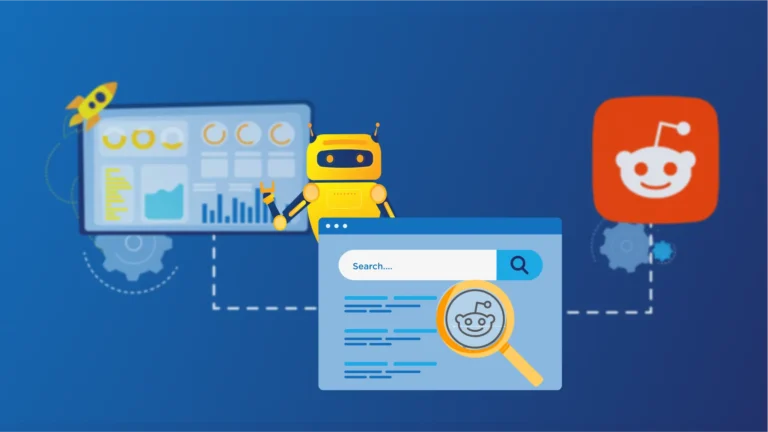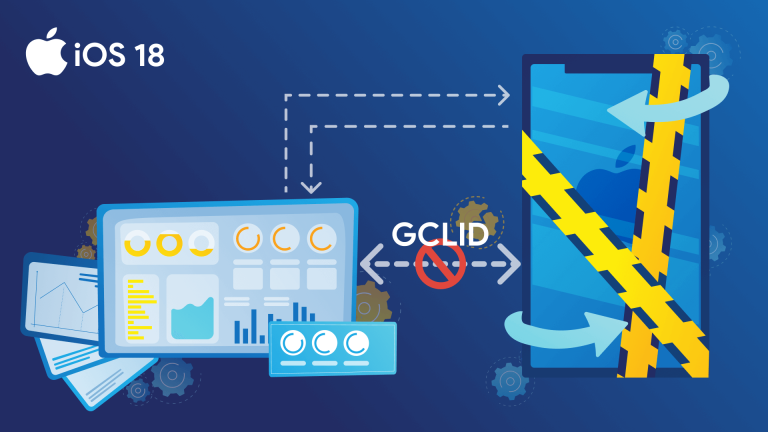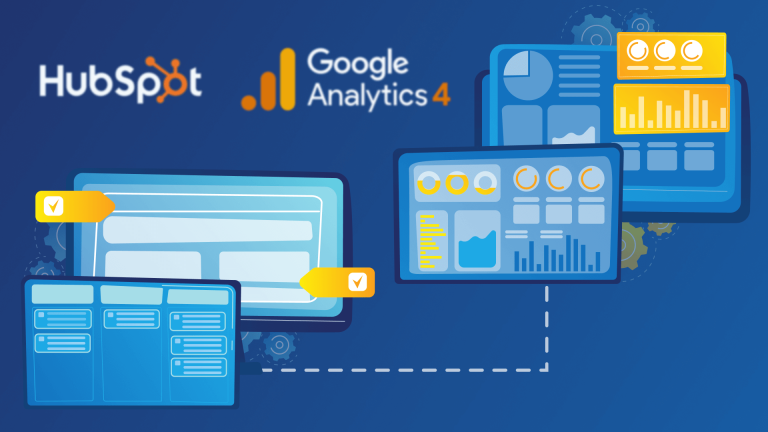Data privacy violations have become one of the most significant financial risks facing companies today. Recent statistics on GDPR compliance reveal that the highest fines are typically imposed for breaches of basic data protection requirements, such as “Non-compliance with general data processing principles” and “Insufficient legal basis for data processing”.
To date, GDPR violations have resulted in fines totaling over €4.6 billion, with a substantial portion of these penalties resulting from inadequate consent management practices — either failing to collect and manage proper user consent. These figures highlight the critical need for a consent management platform (CMP) to ensure data is collected and managed securely. In this way, companies can better protect themselves against penalties.
What is a consent management platform?
A consent management platform is software that helps organizations collect and manage users’ consent for their personal information in compliance with data protection laws and regulations. CMPs are designed to align with laws such as the European Union’s GDPR, California’s CCPA, or Brazil’s LGPD.
Simply put, when a visitor lands on a website, the website uses a CMP to get consent for collecting tracking data. The user is informed, typically through pop-ups or banners, about how their data will be collected and used. They can choose to accept, refuse, or withdraw consent for their data to be collected for specific purposes. If a user declines consent, the platform ensures that appropriate actions are taken so brands and publishers remain compliant with data protection laws.
For website owners, CMPs automate this process. They also allow for centralized management of consent notifications, making it easy to send these notices across all data collection channels.
Why do you need consent management?
As a publisher, ensuring compliance with data protection laws and other regulations is your responsibility. Using a CMP helps you stay compliant while enhancing your credibility with users. When visitors feel safe browsing your website or app, it not only builds trust but also protects you from potential legal penalties for non-compliance.
A CMP can also boost CPMs (Cost Per Impression) and fill rates for publishers by enabling more effective ad targeting and maintaining user trust. It allows you to leverage first-party verified user data to customize content and marketing strategies.
However, it’s essential to acknowledge a challenge: how effective is customization without data of those who haven’t given consent? And how can we target users who opt out? That’s where we at PEMAVOR offer a solution within the framework of side-tracking. This allows you to engage in consentless tracking while staying compliant with privacy regulations. Check out our comprehensive guide to consentless data collection with privacy compliance.
Does Google offer a CMP?
No, Google doesn’t offer its own CMP. Instead, it has a CMP Partner Program, where it certifies and partners with third-party CMP providers. These certified partners meet Google’s specific requirements and integrate seamlessly with tools like Google Consent Mode.
Google Consent Mode allows websites to adjust the behavior of Google tags and scripts based on the user’s consent preferences. It works by sending consent signals collected from websites via a CMP to Google tools. In this way, it ensures that data collection and processing align with the user’s choices.
How do consent management platforms work?
- Step 1: A CMP provides visitors with the appropriate notice regarding the collection and processing of personal data during their first interaction with the website.
- Step 2: It offers consumers an option to set detailed consent and preferences, rather than simply saying “yes” or “no” to all data requests.
- Step 3: The CMP records consumer preferences in a compliant format and shares them only with partners.
- Step 4: It generates the necessary audit logs to demonstrate compliance with regulatory requirements.
- Step 5: Consumers can also review and update their consent preferences at any time, ensuring ongoing compliance with their choices and current regulations.
How do consent management platforms support data privacy compliance?
Once consent is collected, it’s securely stored in a centralized consent repository, which acts as the storage engine for all data processing activities based on user consent.
A consent management engine identifies data subjects and aligns consent preferences collected through various collection points. This ensures that all data handling activities are consistent with the user’s choices.
The data privacy manager uses the centralized consent repository to store these details with the necessary level of granularity, allowing for a clear demonstration of compliant consent.
Marketing engines use consent records to ensure that all marketing communications align with data subjects’ preferences. Processing remains lawful until a data subject withdraws (opt-out of) their consent.
Organizations must ensure that withdrawing consent is straightforward and effective. This option should be enabled across all channels and be easily accessible, similar to the “unsubscribe” function in a newsletter, to ensure full compliance with privacy regulations.
How can you choose the best CMP for your business needs?
Consider these key factors before purchasing a CMP.
Compliance: If a CMP fails to keep you compliant, it could leave you vulnerable to legal troubles, in some cases, having no CMP may be better. Look for a solution with a dedicated team focused on monitoring and adapting to changing privacy laws to ensure your practices remain up-to-date.
Data capturing: Your CMP should provide efficient and transparent data collection that respects user consent. The more data you can ethically collect, the more value you can generate through targeted campaigns and advertising opportunities.
Development and integration: Consider how the CMP will fit within your existing systems. Ready-made solutions often come with their own interfaces, which may or may not suit your workflow. If you prefer a simpler integration, look for CMPs that require minimal setup, like inserting a snippet of code.
Data: Some third-party CMPs offer built-in data management tools, but these may lock you into their specific ecosystem. If you plan to build your own CMP, ensure you have the expertise to maximize your data’s potential and increase your CPMs.
Cost: Third-party CMPs can range from a few hundred to thousands of dollars per month. Building your own CMP is generally the most expensive option, requiring a team of developers and ongoing maintenance.
Integration and customization: Make sure the CMP you choose integrates smoothly with your current technologies, including websites, mobile apps, CRM systems, and marketing platforms. It should also offer customization options to match your brand’s design.
Technical requirements and support: Choose a platform that aligns with your team’s capabilities—one that doesn’t demand extensive developer support if your resources are limited. Also, consider the vendor’s customer support reputation and the availability of resources to guide you through data privacy challenges.
Do I need a consent management platform?
Does your business collect or process personal data? If yes, you need a consent management platform. Otherwise, it’ll be risky to manage user data preferences and build trust by respecting customer privacy.
For businesses operating in or serving customers from the European Union, GDPR compliance requires obtaining explicit consent before collecting, storing, or using consumer data. A CMP automates this process, making it easier for you to stay compliant without manual intervention. This is particularly important because failing to meet these legal standards can result in significant fines and reputational damage.
While some large enterprises may opt to build and maintain an in-house CMP, this approach is often costly and resource-intensive. It requires dedicated engineering teams and compliance managers to continuously monitor and update the platform. A French company faced a lawsuit due to its unclear language, pre-ticked consent boxes, and failure to provide the necessary detailed control for users.
Most brands and publishers find it more efficient and cost-effective to use third-party CMP tools rather than allocate extra resources to build their own. These tools simplify consent management, help maintain compliance, and provide flexibility to adapt to evolving privacy laws.
Which CPM is best?
Here are our suggestions from top consent management platforms:
CookieYes
CookieYes is a versatile consent management platform available across major content management systems, which operates in compliance with 17 different regularity laws. It also offers fully customizable consent banners and features like a Cookie Scanner, Cookie Policy Generator, consent logs, and detailed setup guides. While the free plan is suitable for smaller projects, premium plans provide additional benefits like multilingual support and advanced customization options. The price starts at $10 mo/domain.
Cookiehub
It offers customizable cookie banners, automatic language detection, and detailed consent logs to ensure compliance. With seamless integration options for popular website platforms, CookieHub makes managing user consents straightforward and scalable for businesses. The platform includes features like cookie scanning, flexible styling options, and compatibility with tools like Google Tag Manager. The price starts at €8/mo with a 30-day free trial.
Cookie Script
Its standout features include a dynamic cookie consent banner that adapts to user behavior, a robust automatic cookie scanning tool, and integrations with over 40 website platforms. Cookie-Script also offers a comprehensive analytics dashboard to monitor user consent data and provides multi-language support to reach global audiences effectively. It’s ideal for businesses looking for a flexible, easy-to-implement solution. The price starts at €8/mo with a 14-day free trial.
Usercentrics Cookiebot
It offers advanced features like real-time cookie control, customizable consent banners, and compliance automation across multiple domains. Cookiebot integrates seamlessly with various platforms and provides detailed reports on user consent, enhancing transparency. Its unique “Consent Mode” works with Google services to respect users’ privacy while collecting valuable analytics data, making it ideal for businesses seeking both compliance and insights. The price starts at €15 per domain, per month.
Complianz
Unlike the others, Complianz is a GDPR/CCPA cookie consent plugin for WordPress. It offers automated cookie scanning, consent management, and customizable cookie banners. It also provides features for generating privacy policies, managing data requests, and integrating with popular services like Google Analytics and Tag Manager.
Klaro
Klaro [klɛro] is an open-source consent management platform (CMP) and privacy tool that helps you to be transparent about the third-party applications on your website. It supports multiple modes of asking for consent and can display third-party apps individually or grouped by purpose.
Besides, unlike Google’s Consent Mode V2, which requires a more complex setup, Klaro simplifies the process while still delivering robust compliance features. For a detailed comparison, check out our article on Consent Mode v2 implementation.
FAQ
How does a preference management platform (PMP) differ from a consent management platform (CMP)?
A CMP ensures businesses collect and manage user consent for data processing to comply with privacy laws like GDPR. On the other hand, a PMP allows users to control how they engage with a business, such as choosing communication preferences and content types. Shortly, CMPs focus on legal compliance, PMPs focus on personalizing user interactions.
Why do businesses need a consent management platform?
If your business collects personal data, you need to disclose it on your website. With this way, you inform your users about how their data is processed and request their consent. A CMP automates this process for both you and your users. Without their consent, businesses could face a lawsuit due to collecting data.
How does a consent management platform work?
Please, read the article. You’ll find this information in detail.
How can organizations ensure ongoing compliance with consent management?
A CMP automates consent tracking process, regularly updating consent policies, and obtaining explicit informed user consent. They also provide easy opt-out options, maintain records of user consent, and regularly audit data practices to stay aligned with privacy regulations.
Are there any open source consent management platforms?
Yes, Klaro is an open source consent management platform. You’ll find the details about it in the article. Please check it out.
Are consent management platforms only for large enterprises?
Any business which collect personal data must comply with privacy regulations.




